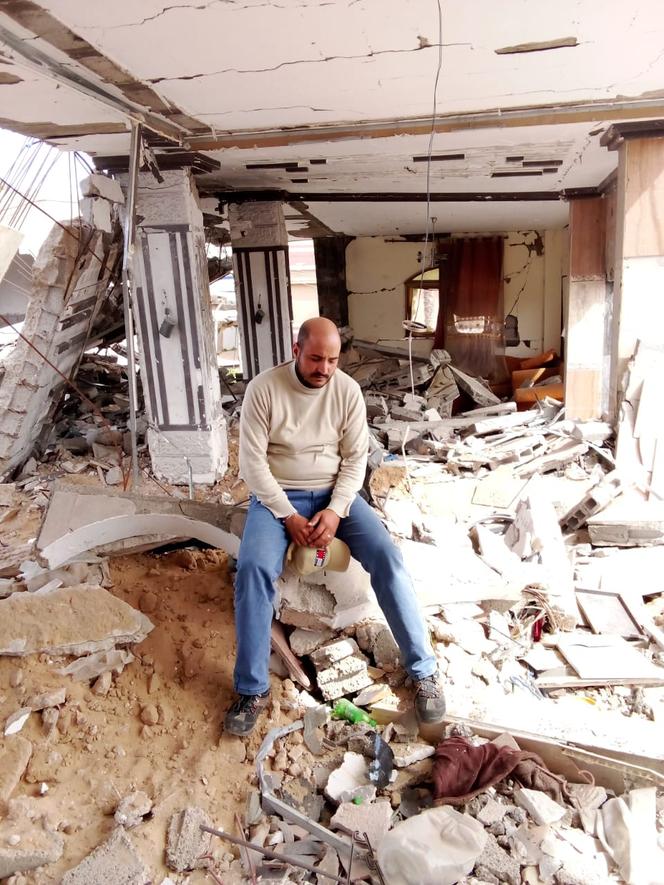


"We live in the unknown. Neither in Gaza nor in France. We're stuck in Egypt with no idea of what's in store for us," lamented Islam Idhair, a Palestinian journalist, fixer and translator who has been working for French media organizations in the Palestinian enclave for the past 15 years. Behind his good humor and the jokes he tells in perfect French lies a broken man suffering from the traumas of war.
On October 21, his house in Rafah was bombed by an Israeli raid, killing his four children instantly. Only Islam's hand protruded from the pile of ruins, showing rescuers the location of his buried body. Once extracted from the rubble and transferred to hospital, the 37-year-old father discovered, one by one, the remains of his sons, Ayman, 13, and Aous, 5, and his daughters, Imane, 12, and Andalous, 10.
"We were a wonderful family. I taught them French," he recalled. "French culture has always been a window of freedom for us Gazans, in our open-air prison," he added. Idhair worked as a French language assistant at Gaza's Al-Aqsa University, a documentary filmmaker for Ramallah's Al-Qattan cultural center and co-founded the French-language media outlet Bonjour de Gaza ("Hello from Gaza").
Idhair and his wife, Hiba, along with a few hundred Gazans, had been included on a list transmitted by France's consulate in Jerusalem to the Foreign Ministry's crisis unit in the spring for possible evacuation to Egypt, and then to France. After evacuating French nationals, dual nationals, staff of the French Institute and their neighbors from the enclave, the Foreign Ministry had wanted to extend the arrangements to certain hand-picked individuals with links to France.
Around May 1, the Foreign Ministry forwarded a list to the Israeli authorities with a view to extracting some of the people on this list. But the operation never took place. On May 7, ignoring all international warnings and calls for restraint to spare the hundreds of thousands of civilian refugees in the south of the enclave, the Israeli army stormed the town of Rafah and took control of the border crossing, closing the only exit for Gazan civilians.
Anticipating an imminent offensive, Islam and his wife had decided to flee to Egypt by their own means. On May 1, they arrived in Cairo after paying an exorbitant entry fee, which they were able to finance thanks to a donation campaign organized by French citizens. As soon as they arrived, the couple applied for a visa and obtained a first appointment with the French consulate. Two months later, despite a solid application including a promise of employment with a French community radio organization and guaranteed accommodation, they are still waiting for a response.
You have 57.46% of this article left to read. The rest is for subscribers only.
